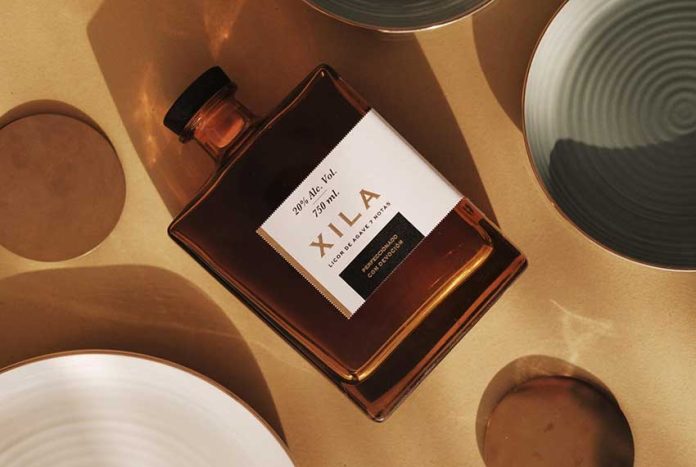Pineapple, lavender, chile ancho, hibiscus flower, clove, cinnamon and black pepper infused into mezcal. These are the potent ingredients that make up Xila, an award-winning artisanal liqueur produced by a micro-distillery in Mexico City that is run completely by women.
Xila is one of several small-batch liqueurs that tantalize the senses and make up the products of Destilería Flor de Luna.
Founded in 2015 by distiller Dona Spotter, Flor de Luna started out as a one-woman show. Spotter created infusions in her apartment, a passion that arose from working as a bartender in Santa Fe.
“I really liked studying the measurements of each drink, but I wasn’t that interested in mixology,” Spotter said. “What really intrigued me was the entire process of making a vodka, rum, tequila or mezcal. I spent a lot of time doing tests, making comparisons between what I made with other products that were out there and bit by bit I was able to establish my style and my recipes.”
Spotter went to learn the basics of distilling from Edgar Villanueva, proprietor of Edgar Villanueva Distillery in Guadalajara. The rest, she says, was a combination of reading a lot of books on the subject and, of course, trial and error.
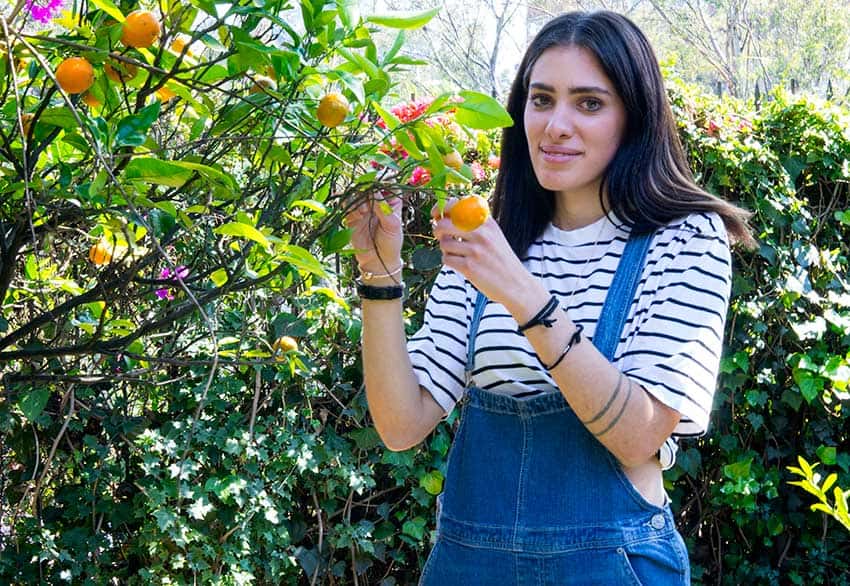
“I didn’t make the alcoholic base at first, just infusing with different herbs and such,” Spotter said. “It was just me. It was with my designs — very underground. Finally I came around to making a mezcal infused with pineapple and chile, and that was what people liked the best.
“So I decided to focus on that, to improve the recipe and create my product. Throughout 2016, I was formulating different processes and trying out different things, and finally Xila emerged as it is now.”
A major aspect of Spotter’s research was based on the changing seasons of Mexico and how that affects the country’s produce.
“It took me a while to make the perfect recipe throughout all seasons,” she said. “We have ingredients that change; there are months when the chile is more spicy, months when pineapple is more sweet, more dry or more acidic. So that entire year I was trying the Xila recipe during different seasons, but I also learned how to distill all kinds of other alcohol.”
Spotter took Xila to the SIP, the International Spirits Competition in California, where it won the gold medal in 2016. That gave her the confidence to begin producing more of it, and also to begin approaching distributors in Mexico.
Unfortunately, she said, that was when Mexico’s machista reality reared its ugly head. And ultimately what led Flor de Luna to be a team of women.
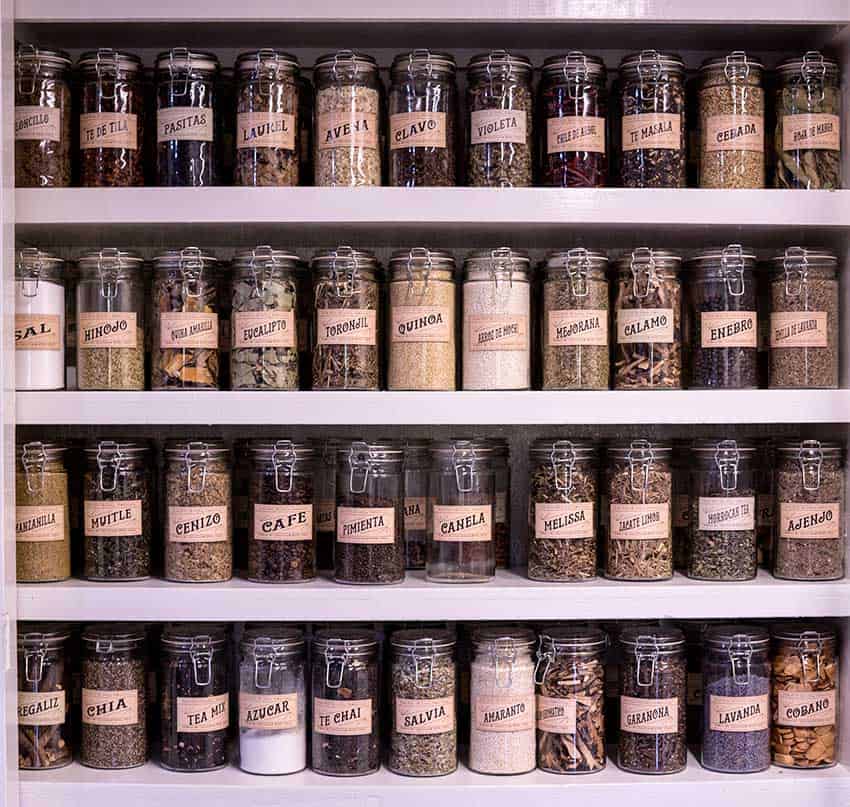
“I decided to work only with women because a lot of doors closed to me for being a woman,” Spotter said. “I visited a lot of distributors and showed them my product, and one actually told me flat out that he didn’t want anything to do with my product because he didn’t believe in it and that I didn’t know what I was doing because I am a woman.”
Flash forward to December 2018 when Xila hit the bars of New York City. It had already been present in places such as the Riviera Maya, Monterrey, San Miguel de Allende, Mérida, León, Los Cabos, Ensenada and on the shelves of City Market, Mexico’s gourmet grocery chain.
In addition to Xila, Flor de Luna also produces both a lavender liqueur and a lychee liqueur, as well as four bitters: Fourth Season, Cafe de Olla, Xila and Tea Mix.
The distillery also takes on special projects and commissions, such as a strawberry gin and a Pan de Muerto liqueur made in the past for Mexico City restaurants. Recently, Flor de Luna worked with chef Alejandro Cabral of Mexico City’s Alba Cocina Local to create marinades using Xila.
Moving through what Spotter says is the sexist environment of bartending and liquor distribution has been one challenge, though she doesn’t seem to fazed by it at this point. The other challenge her company has faced is getting people to try something different.
“It’s hard to change people’s minds,” Spotter said. “They are closed off to only drinking what they know. But a lot of people are starting to become more interested in buying Mexican artisanal products. I think a challenging thing for anyone in this business is that while you can get people to try something, it’s harder to later get them to actually choose it over something that they are used to, even if they love what you’ve exposed them to.
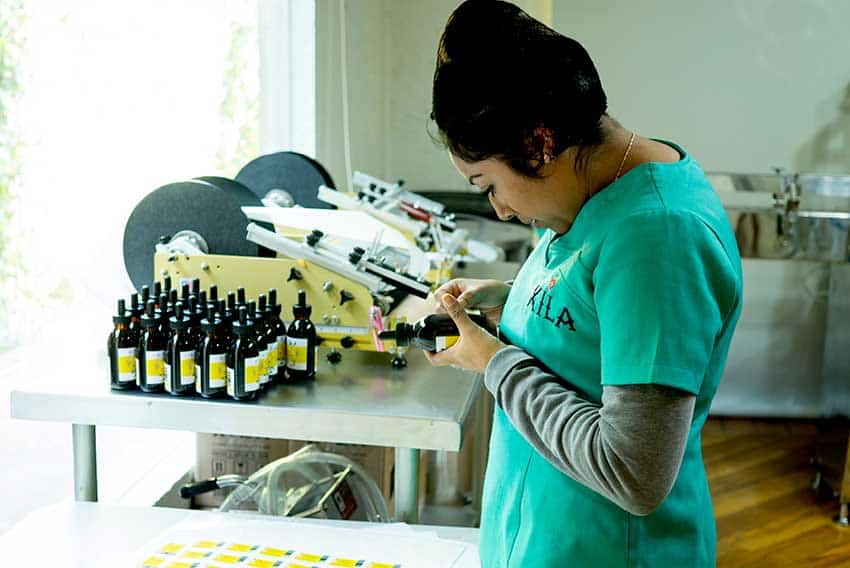
“It also has been challenging to explain to people that even though my team is completely made up of women, that doesn’t mean that the product is only for women. It’s for everyone.”
Still, Spotter says, the positives far outweigh any potential setbacks.
“The best thing for me is to see people’s pleasure when they try my product and they like it,” she said.
Currently producing 1,500 liters a month, Flor de Luna will be needing a bigger space soon to accommodate more production and therefore more employees. There is a small but elegant tasting room as well, and Flor de Luna invites people to take a distillery tour ending with a tasting at its location in Mexico City.
Wendy Rodríguez, chief of production at the distillery, has worked at Flor de Luna for four years, learning the entire process of production, bottling and labeling from Spotter. Now Rodríguez is in charge of training new hires.
The production team currently consists of five women, including Spotter and Rodríguez, as well as one of Rodríguez’s sisters and two cousins. The women work a flexible schedule of three days per week, which allows them to care for their children, while learning a new skill.
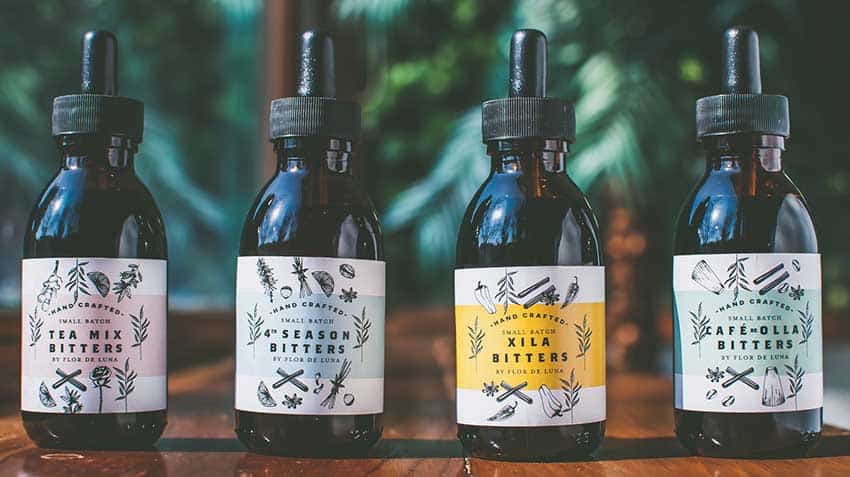
“Dona is learning even more every day so I keep learning from her,” Rodríguez said. “We go from doing the basic to then labeling and bottling. I love preparing Xila, I love the ingredients. I love to count every little thing that goes into it.”
Building a team of only women wasn’t entirely based on a desire to tell the patriarchy to back off, though. Spotter says she believes women have more finesse and delicacy and are more detailed when it comes to hand-picking the botanicals that go into each bottle.
Xila means woman in the Mexican indigenous language of Zapotec. Flor de Luna references the fragrant and mysterious moon flowers endemic to Chiapas and the Yucatán peninsula.
“If we have to cut 3,000 lavender leaves, they do it with a lot of love,” Spotter said. “And I think that has a been a reason why the product is so good as well; one way that we are able to maintain the quality.”
While Spotter’s professional motto for the company, to be a production house of the best organic alcoholic beverages in Mexico, could well be the goal of many distilleries, her personal goal is one of the things that she asserts sets Flor de Luna apart from competitors.
“I like to believe that in every product and lot that we made, we embottle our feelings,” Spotter said. “We have a massive closet filled with different trials that we’ve made, and each of them was completed at a different point of my life. The whole year that I was actively trying new things, well, each bottle has a feeling in it from that. That is what we want to share.”
Megan Frye is a writer, photographer and translator living in Mexico City. She has a history of newsroom journalism as well as non-profit administration and has been published by several international publications.
